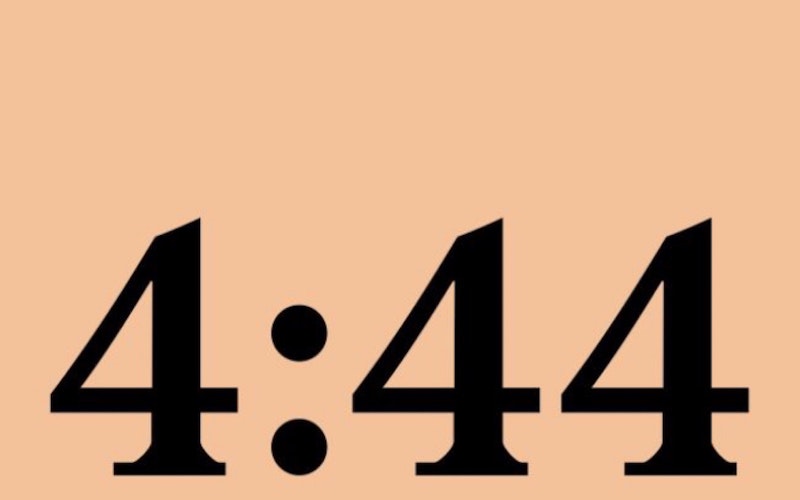
Music
4:44 ― Hearing Jay-Z's Confession
Jay-Z is 47. 47. The man has been active since 1986 (the year I was born!). In 2003—on what was supposed to be his swan song—he mused, “What more can I say?” Now 14 years and five studio albums later, Jay-Z’s 4:44 still has something new to spit. This time: confession.
A lot of time has passed since Jay-Z was a young hustler in Brooklyn’s Marcy public housing complex. Clearly fatherhood, marriage, and success have all shifted the way he now sees his past life. 4:44 invites us to take a painful look in the rear-view mirror.
The album jumps to life with these two words: “Kill Jay Z.” He’s determined to put the man he used to be—short-sighted, egotistical, impulsive, selfish—to death. He tells himself that the only way to change is to bring everything into the light: “Cry, Jay Z / We know the pain is real / But you can’t heal what you never reveal.” In the past, he was a man with alibis, clinging to deniability. Yet “Kill Jay Z” sings a different tune. In the background, an Alan Parsons Project sample acts as his conscience: “They say I’m to blame...” Stepping into the light means admitting what’s been true all along. The problem isn’t everyone else, “you’re the one that’s insane.”
Over the past five years, fatherhood has given Jay-Z new eyes. No longer “solipsistic,” as he says on “Caught Their Eyes,” he sees that personal sins will have lasting consequences for his family. Subdued with regret on the title track, which serves as his apology to Beyoncé for his infidelity, Jay-Z winces, “And if my children knew / I don’t even know what I would do … my heart breaks for the day I have to explain my mistakes.” In painful retrospect, he sees now that no fleeting pleasure is worth losing your family.
I admit, my view of celebrity marriages is jaded, but on “4:44” Jay-Z bears his soul like a man filled with contrition. (He also gets help from Hannah Williams’ heart-bending background vocals.) While some have insisted the back and forth of Beyoncé’s Lemonade and Jay-Z’s latest is just a publicity stunt, Jay-Z’s collaborators insist that his confessional tone is about more than generating good press. The album’s producer, No I.D., shared his visceral response to the first time he heard the title track: “I go, let me go find my wife and give her a hug. Walk down the street and hold hands.”
The execution-style break Jay-Z hopes to make with his old self is reminiscent of the language in Paul’s epistles.
Of course, our culture has a habit of celebrating confession for confession’s sake. Authenticity is the great virtue of our moment. Still, I appreciate the way Jay-Z invites us to fully loath elements of his past. He doesn’t sugarcoat it. He doesn’t seek affirmation or approval. In fact, the execution-style break he hopes to make with his old self is more than reminiscent of language found in Paul’s epistles, where the apostle urges us to “put to death, therefore, whatever belongs to your earthly nature.” What’s more, Jay-Z reminds us that marriages and families stick together not because they are perfect, but because they are forgiving.
While 4:44 is written with sensitivity to interpersonal relationships, it doesn’t quite capture the full nature of biblical confession. Christian confession is a two-sided coin: telling the truth about ourselves and telling the truth about God. If 4:44 doesn’t evoke the latter element, it still bears witness to the common sense of conviction that lies within each of us. In Romans, Paul observed that the Gentiles “show that the requirements of the law are written on their hearts, their consciences also bearing witness…” 4:44 is further evidence of that.
Topics: Music, Culture At Large, Arts & Leisure